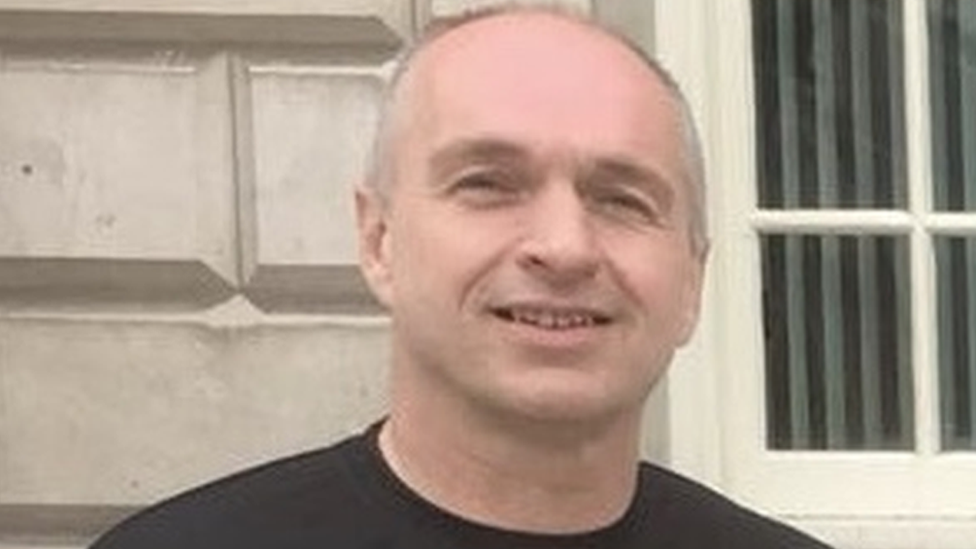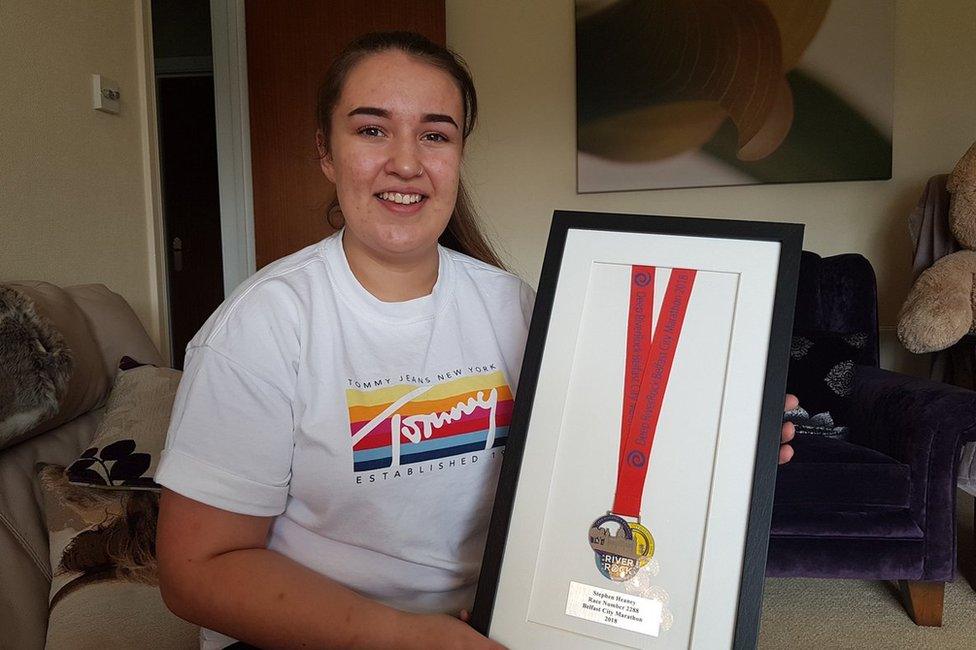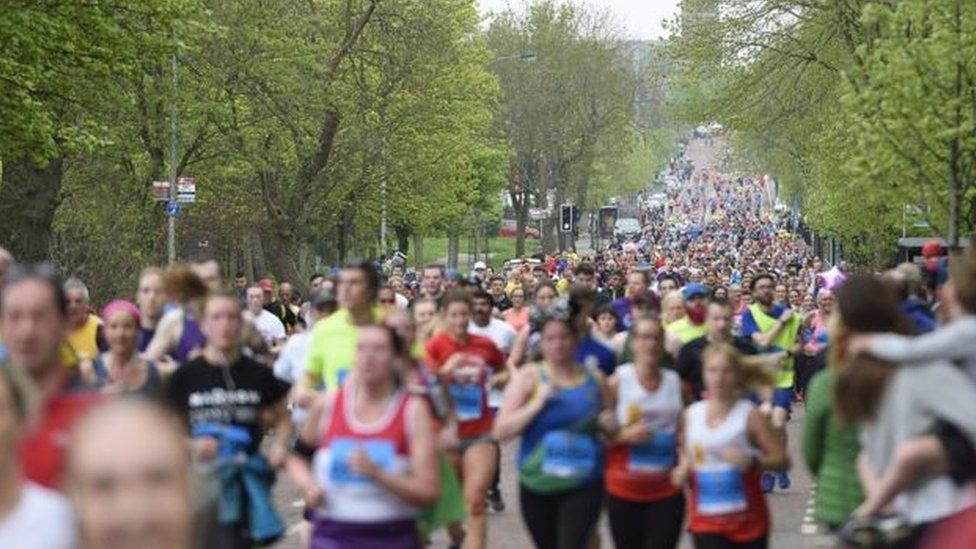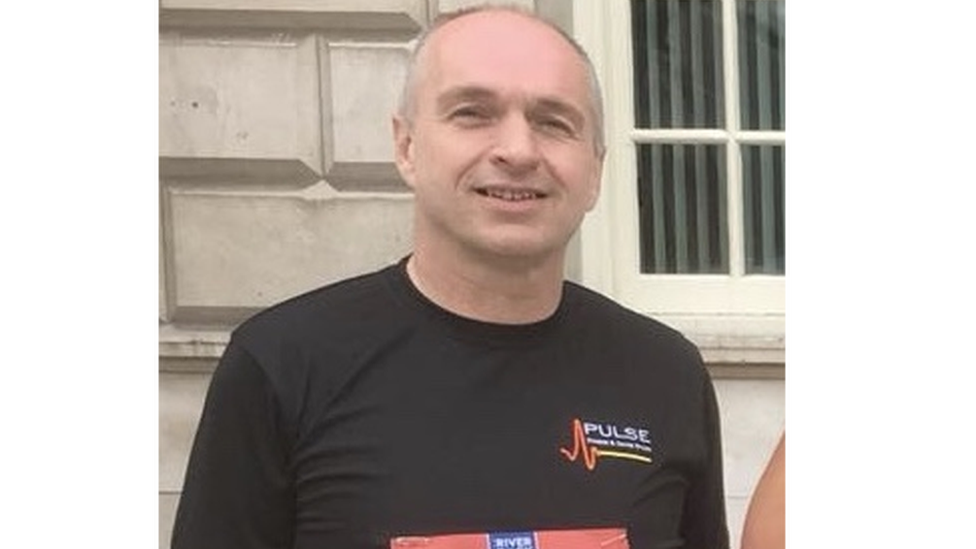Stephen Heaney: Marathon victim's family warn of risks
- Published

Stephen Heaney was 50 and was running his first marathon
The family of a police officer who died after he collapsed during the Belfast marathon last year have urged runners in this year's race to be aware of the health risks.
Stephen Heaney, who was 50 and was running his first marathon, collapsed at the Sydenham bypass after suffering a heart attack.
He died later at Belfast's Royal Victoria Hospital.
Some 18,000 runners are to take part in the city's 38th marathon on Sunday.
Mr Heaney was among 17,000 competitors in last year's marathon.
'My hero'
Mr Heaney, who lived with his family in Limavady, collapsed five miles into the race.
His 19-year-old daughter Victoria told BBC News NI that competitors should not be afraid to talk to a doctor if they had health concerns.

Stephen's marathon medal was presented to his daughter Victoria and the rest of the family after his death
"If you're not feeling well then don't be scared to say or speak to a doctor," Victoria said.
"I want everyone to enjoy the marathon on Sunday but I also want people to be aware of the risks so they don't collapse like my dad did."
Victoria said her father was her hero.
"He was an amazing man and everyone in Limavady knew that," she added.
"He was really into his sport and fundraising. I talk about him all the time because I'm proud.
"Not everyone gets to have a dad in their lives like him. We miss him every day and I love looking through photos of him when we were all younger."

Stephen Heaney, pictured here with his daughters Victoria and Rebecca, was an active sportsman
There are around 4,400 hospital admissions for heart attacks in Northern Ireland each year, according to the British Heart Foundation.
A heart attack happens when there is a sudden loss of blood flow to a part of your heart muscle.

What are the symptoms of a heart attack?
Pain or discomfort in the chest that occurs suddenly and doesn't go away
Pain on your left or right arm, neck, jaw, back or stomach; for some people the pain or tightness is severe
Feeling sick, sweaty, light-headed or short of breath

Craig Moore, the cardiovascular clinical development coordinator for the British Heart Foundation, said: "This story highlights how heart and circulatory disease can affect anyone at any age."

About 18,000 competitors are set to take part in this year's Belfast Marathon, which is being run on a Sunday for the first time
"It's important that everyone knows the risk factors.
"I've actually ran the Belfast marathon myself and I know how gruelling that is on the body.
"It is very easy to put down symptoms like being short of breath and being sick to running, but we all need to listen to our bodies a bit more.
"If you have pains in your chest, going into our arms, down our back or into our jaw, you should seek advice before undertaking an event like a marathon.
He said calling 999 should be a priority.
"If you feel something is not right, you should seek some advice," added Mr Moore.
Belfast marathon organisers have urged entrants not to take part in Sunday's race if they have a viral infection, chest discomfort or pains, palpitations or are generally feeling unwell.
- Published9 May 2018
